Disclaimer: The following post contains spoilers from the film, Sandeep Aur Pinky Faraar.
Dibakar Banerjee is the kind of director who uses society as a clever backdrop in his stories, ensuring to hold a mirror to the injustices that have been normalized over the years. His latest film Sandeep Aur Pinky Faraar, co-written with Varun Grover (of Masaan fame) is no exception.
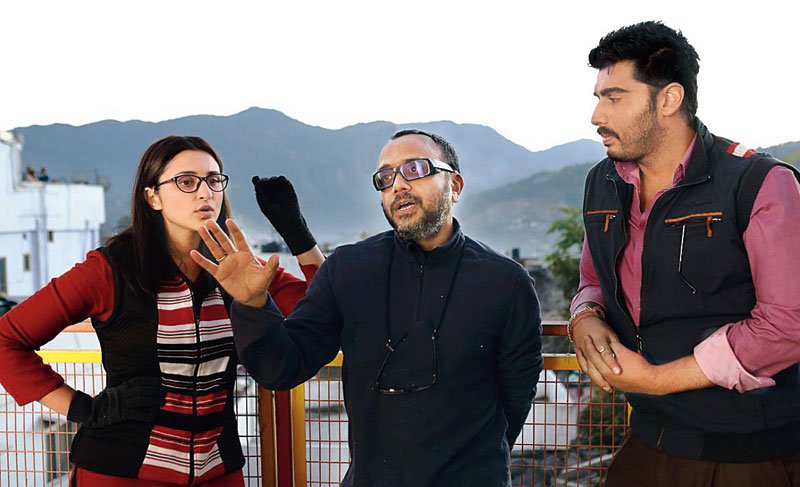
Starring Parineeti Chopra and Arjun Kapoor as an unlikely duo on the run, the film recently released on Amazon Prime Video, after its earlier theatrical release.
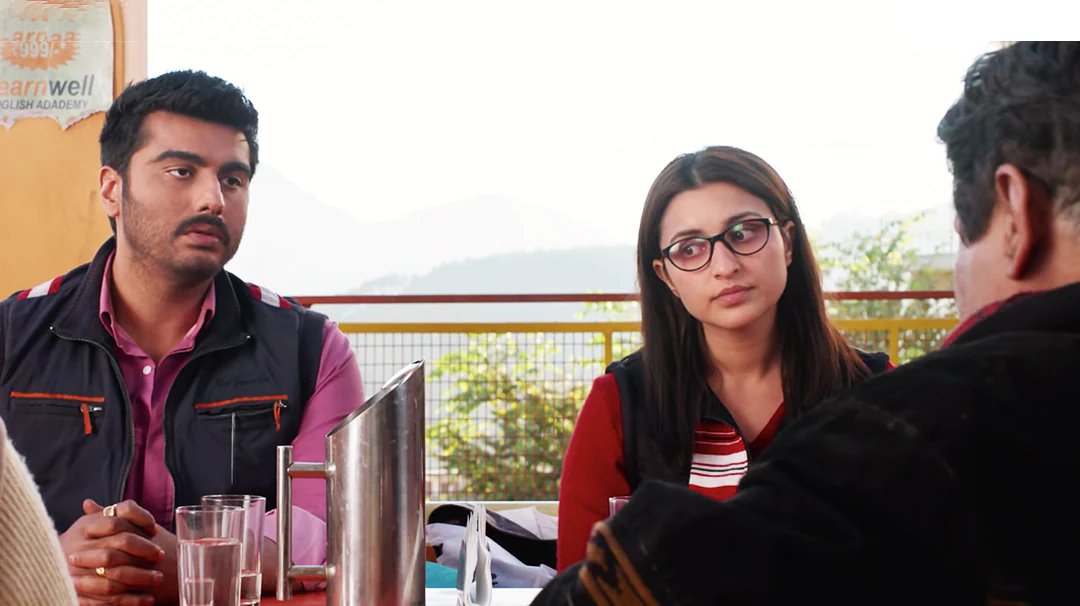
A thriller, it subverts Bollywood’s traditional treatment of chase thrillers (that almost always end up in romance), to present a black comedy that subtly but effectively showcases the deep-rooted patriarchy and class divide in our society with moments like these:
1. The title of the film itself calls out flawed gender norms that push us into assuming Sandeep is a guy’s name and Pinky a girl’s. But it’s the opposite.
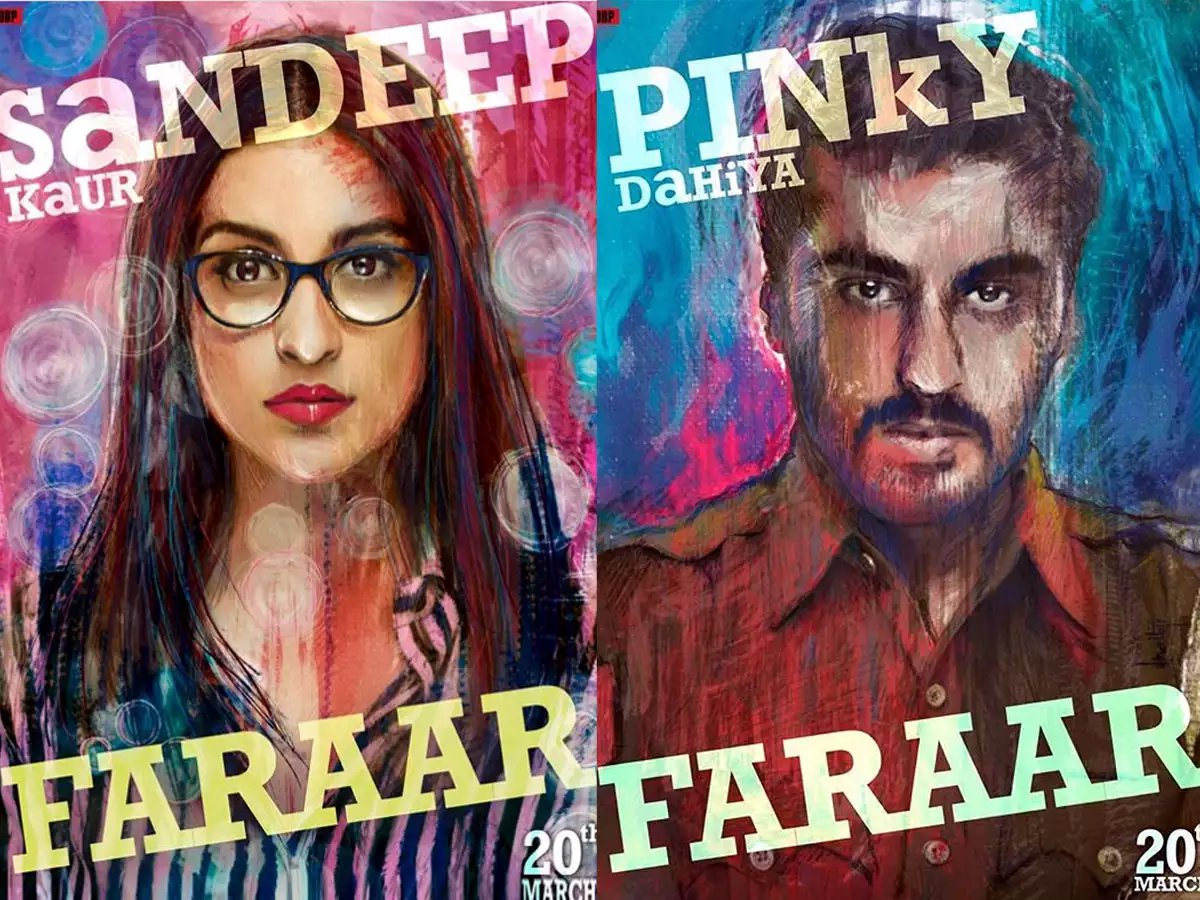
2. In the opening scene, a group of men casually discuss the women they’ll meet at a party, and a woman is judged by whether she wears lipstick or not.
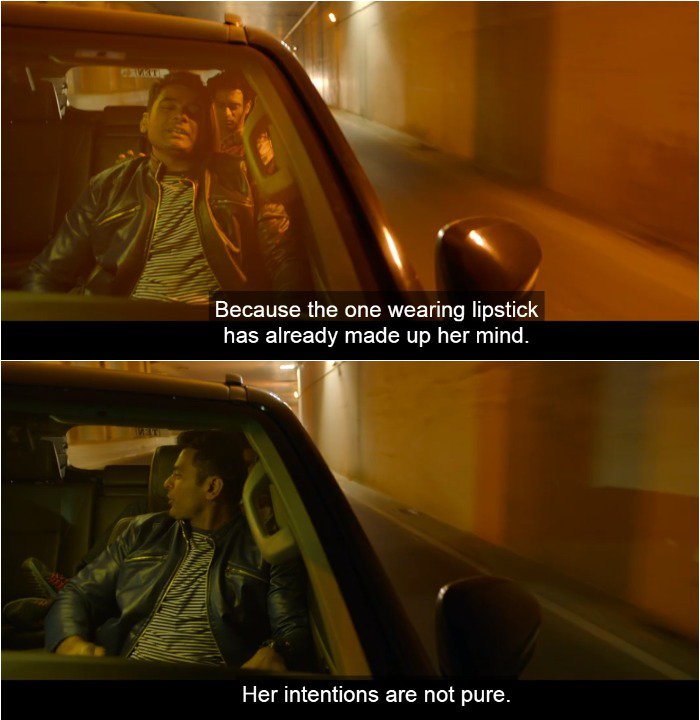
Similarly, thinly-veiled judgement is offered to a man for wearing the colour pink at the behest of his ex-girlfriend. Though it’s quickly transformed into a stud moment, where it’s declared that he was “man enough” to carry off the pink colour.

The entire scene is one of the finest examples of casual sexism, or rather the “men’s locker-room culture”, that a movie has showcased in recent times.
3. When one of the people tasked with finding Sandeep throws his shoes at his house help.
One of the people tasked with finding Sandeep hires Tyagi (a brilliant Jaideep Ahlawat), a cop, for the task. During a conversation with Tyagi, he casually takes off his shoes and throws them at his house help, presumably to get them cleaned and stored.
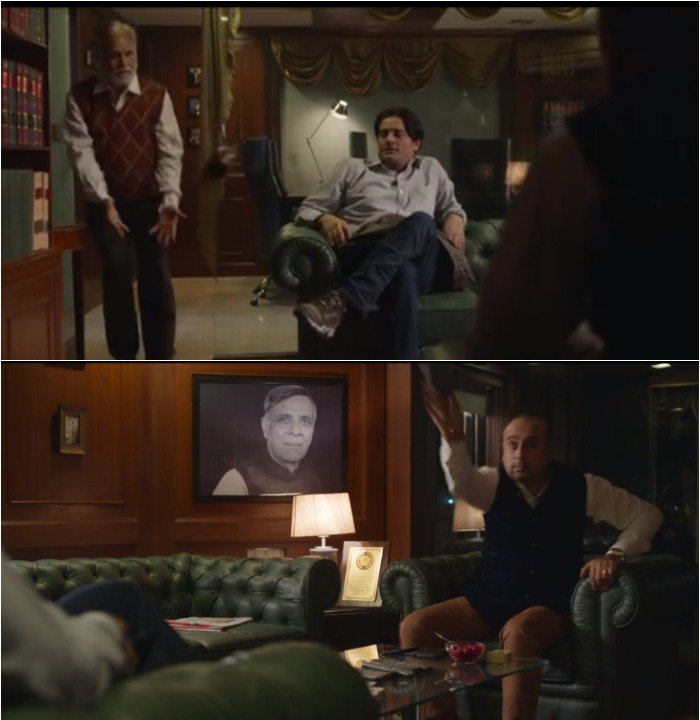
The subtle shift in Tyagi’s non-chalant attitude ensures you don’t miss the significance of this action, or ignore Ahlawat’s brilliant performance.

The act is a stark reminder of how, in most households in India, the house help is not awarded even basic respect and courtesy.
4. When Sandeep and Pinky take refuge with an elderly couple, (the ever-delightful duo of Panchayat, Raghubir Yadav and Neena Gupta), Sandeep is immediately tasked to help with household chores.
Right from the start, when Sandeep and Pinky pretend to be a couple and interact with the elderly couple, Sandeep is asked why she continues to work, even though she is married.
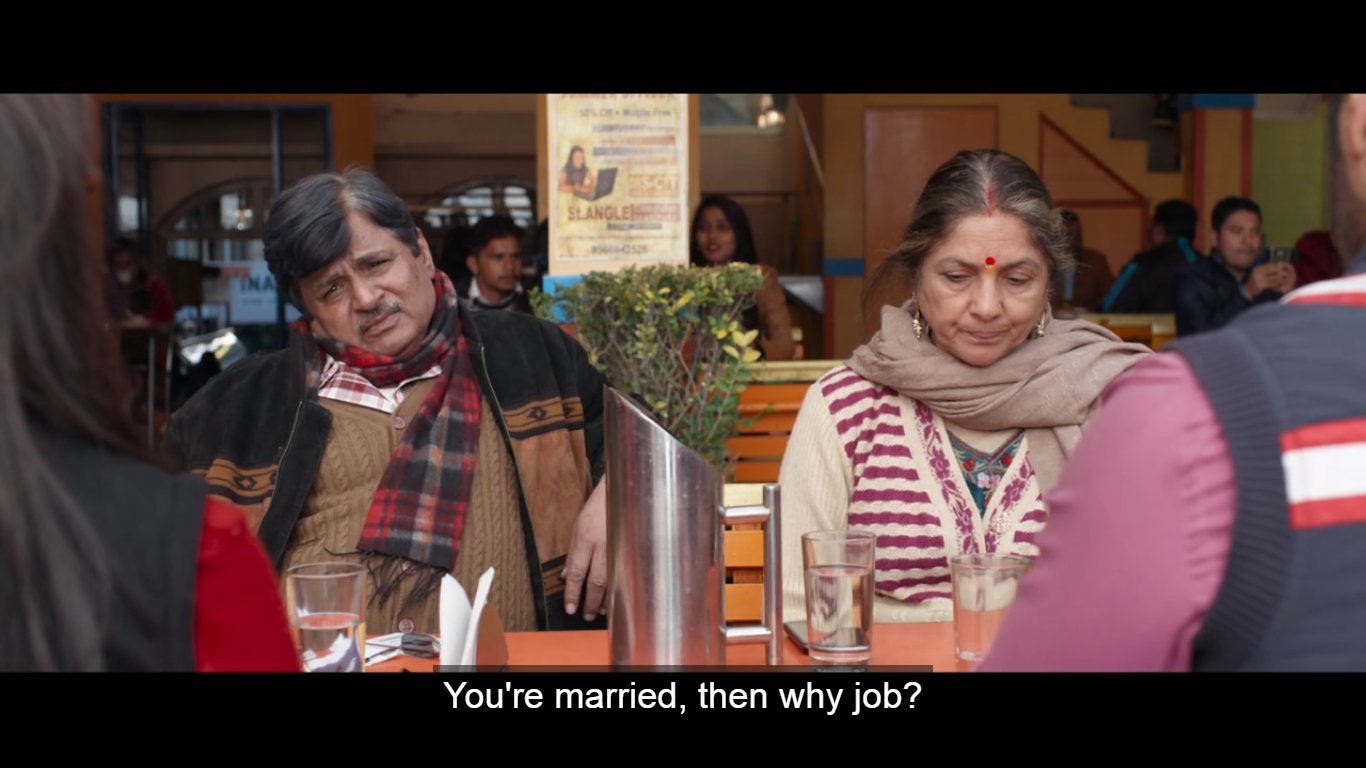
From serving food to the men first to being asked to knead the dough to prepare rotis, Sandeep is immediately relegated to performing household chores – even when Pinky is the one who actually knows his way around a kitchen.
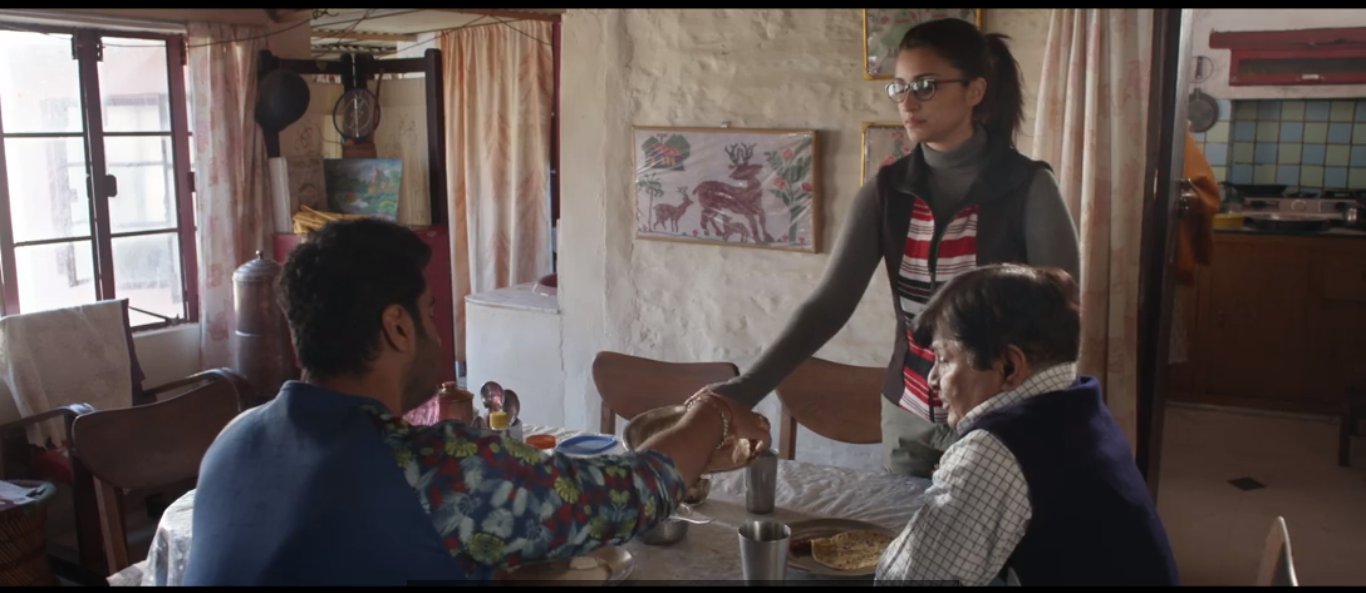
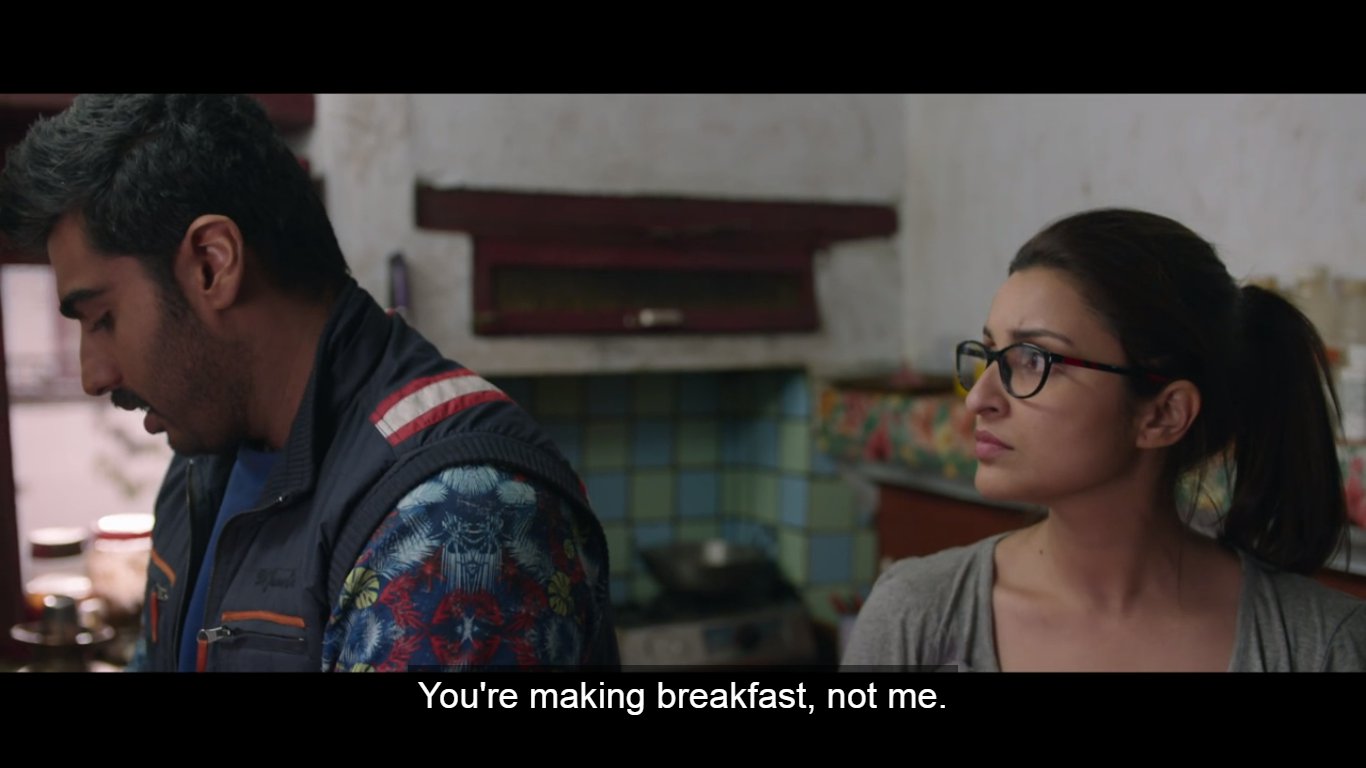
5. When Aunty ji remarks how, after a fight, she threatened to leave the home but her husband was quick to remind her that she had nowhere else to go.
It’s an astute commentary on patriarchy – where women are subjected to a man’s “rule”, before and after marriage.
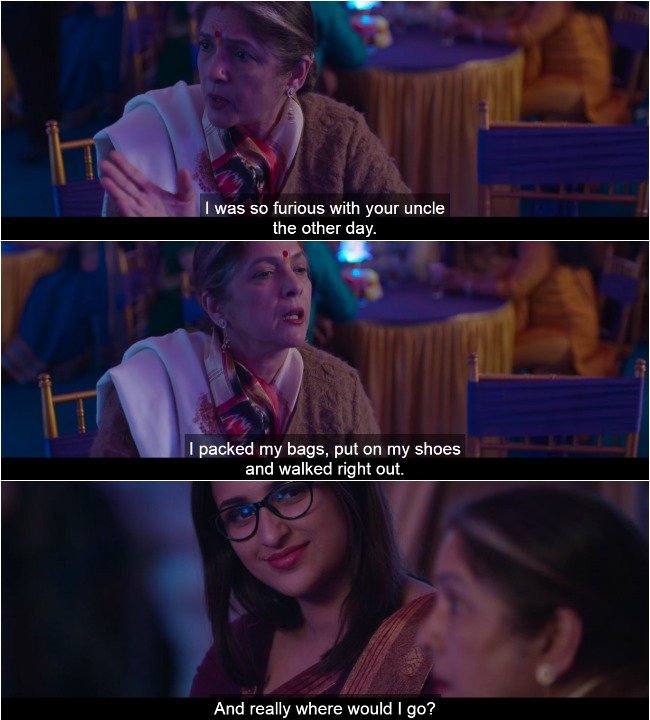
It also takes on the issue of the class divide, where women like Aunty ji can, at the most, joke about their situation, but women like Sandeep, who had access to proper education and exposure, have the option to lead an independent life.
6. In fact, Aunty and Uncle’s (as Neena Gupta and Raghuvir Yadav are referred to in the entire movie) entire relationship is a reflection of how women are often treated as “secondary” citizens in their own household.
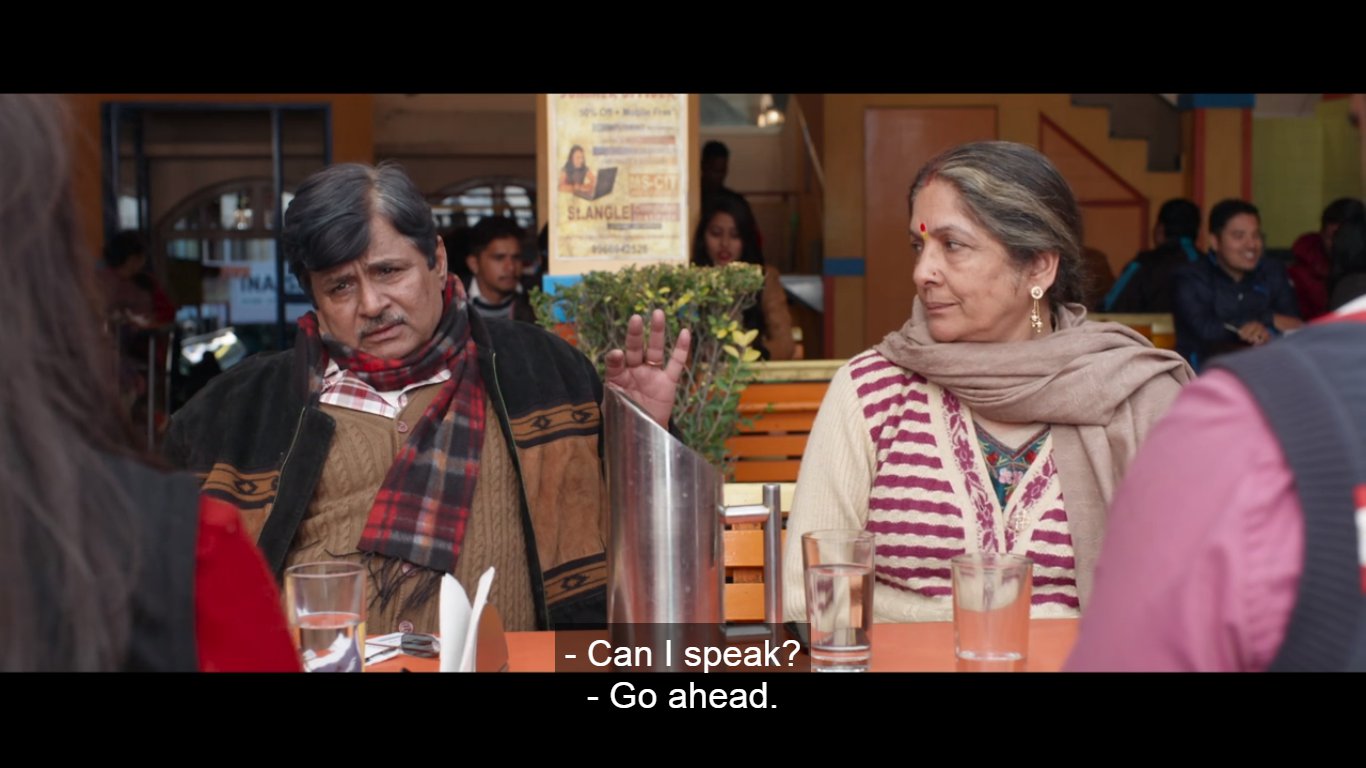
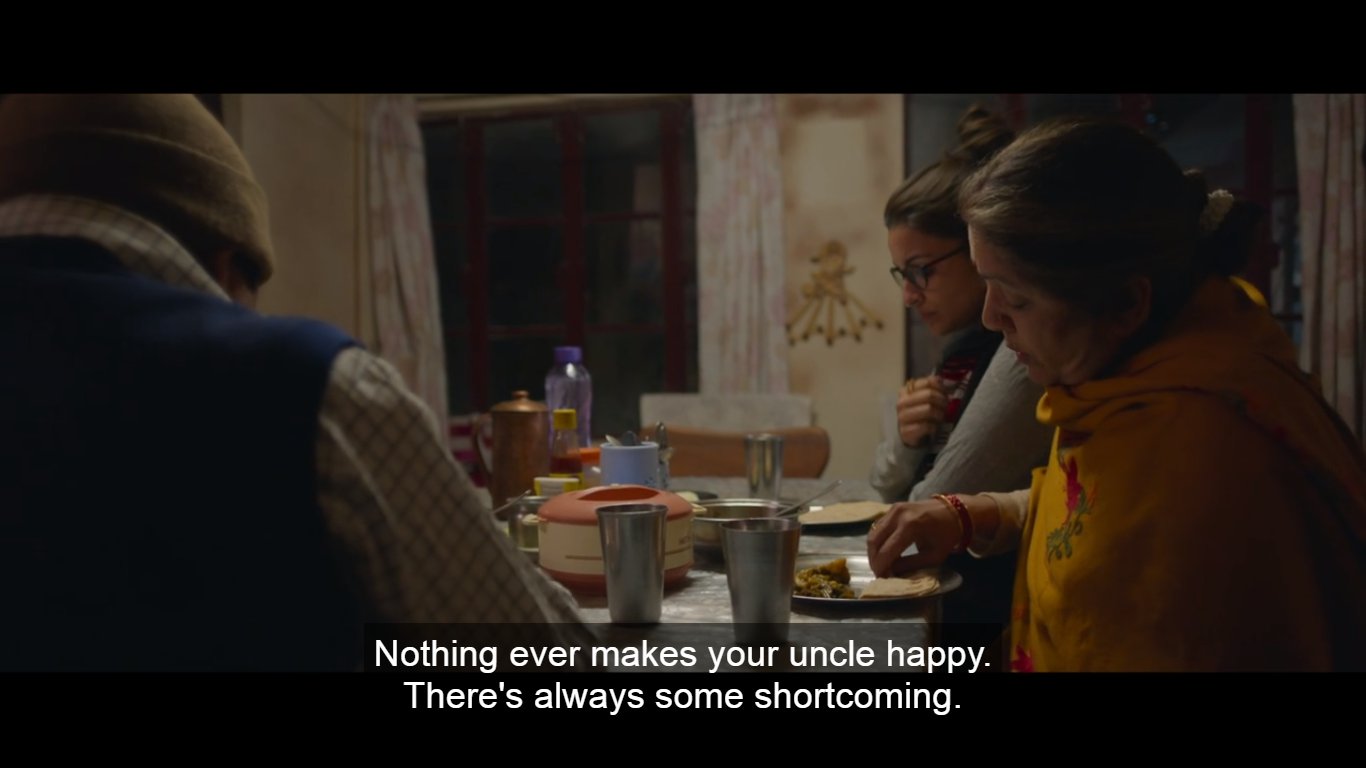
It’s also a reminder of how, even when men care for their wives, they are just as quick to put them down or take out their anger on them.
7. Sandeep admonishes Pinky for stripping her achievements and Pinky calls out Sandeep for undertaking unscrupulous activities out of greed.
Aggravated by constantly being put down because of her gender, Sandeep calls out Pinky for reducing her achievements and her worth to her ability to carry out household chores and take orders from men.
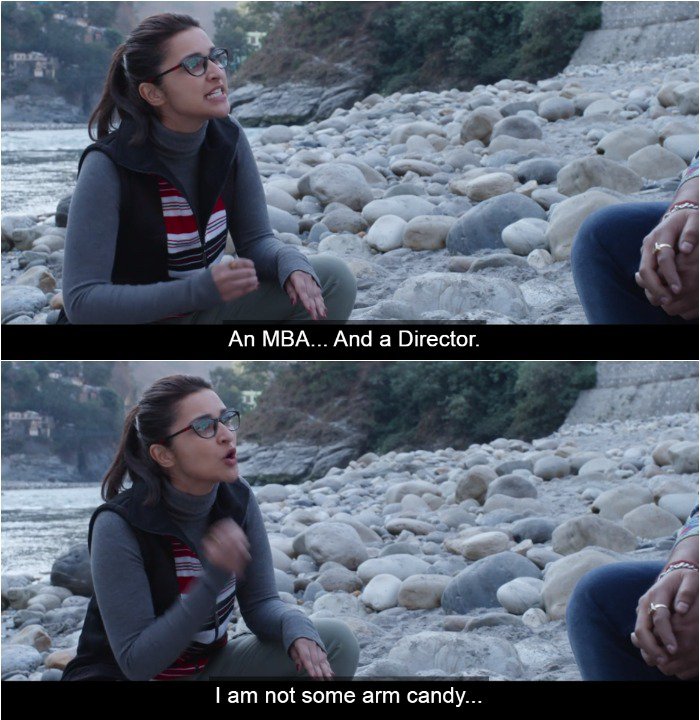
During the same altercation, Pinky finds out the real reason why Sandeep’s former employers are chasing her. And he is disgusted by how Sandeep and her bosses have taken advantage of people for their own greed.
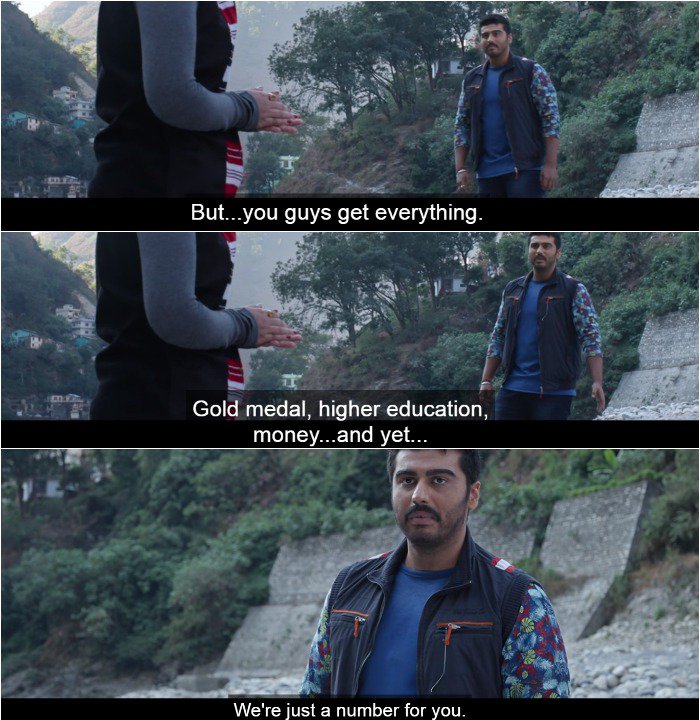
It’s one of the only moments in the film where makers outrightly call out the class difference and gender divide that exists in our society.
8. Even though Sandeep is the one who helps uncle recover his money from the bank, he thanks Pinky instead.
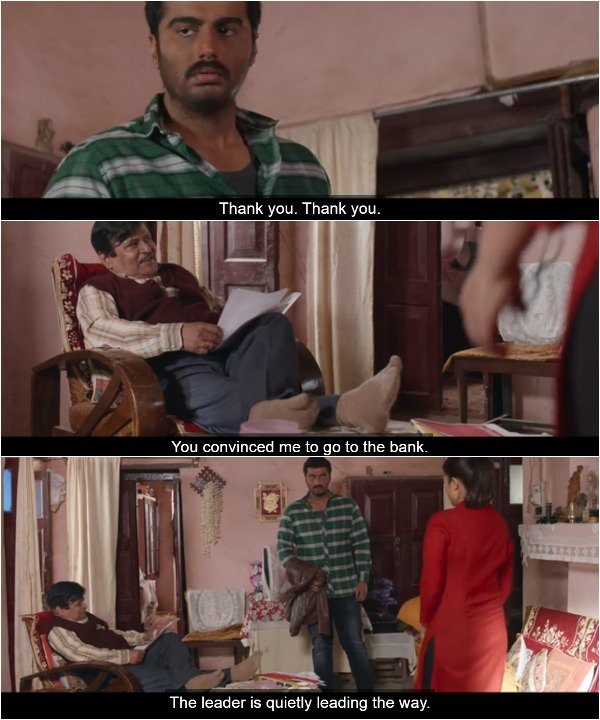
9. When Pinky is assaulted by a bank manager.
The ease with which the bank manager expresses his perverted thoughts is equivalent to the fierceness with which Sandeep counters his attack, proving it’s clearly not the first time Sandeep has had to defend herself against a violent attack by a man.

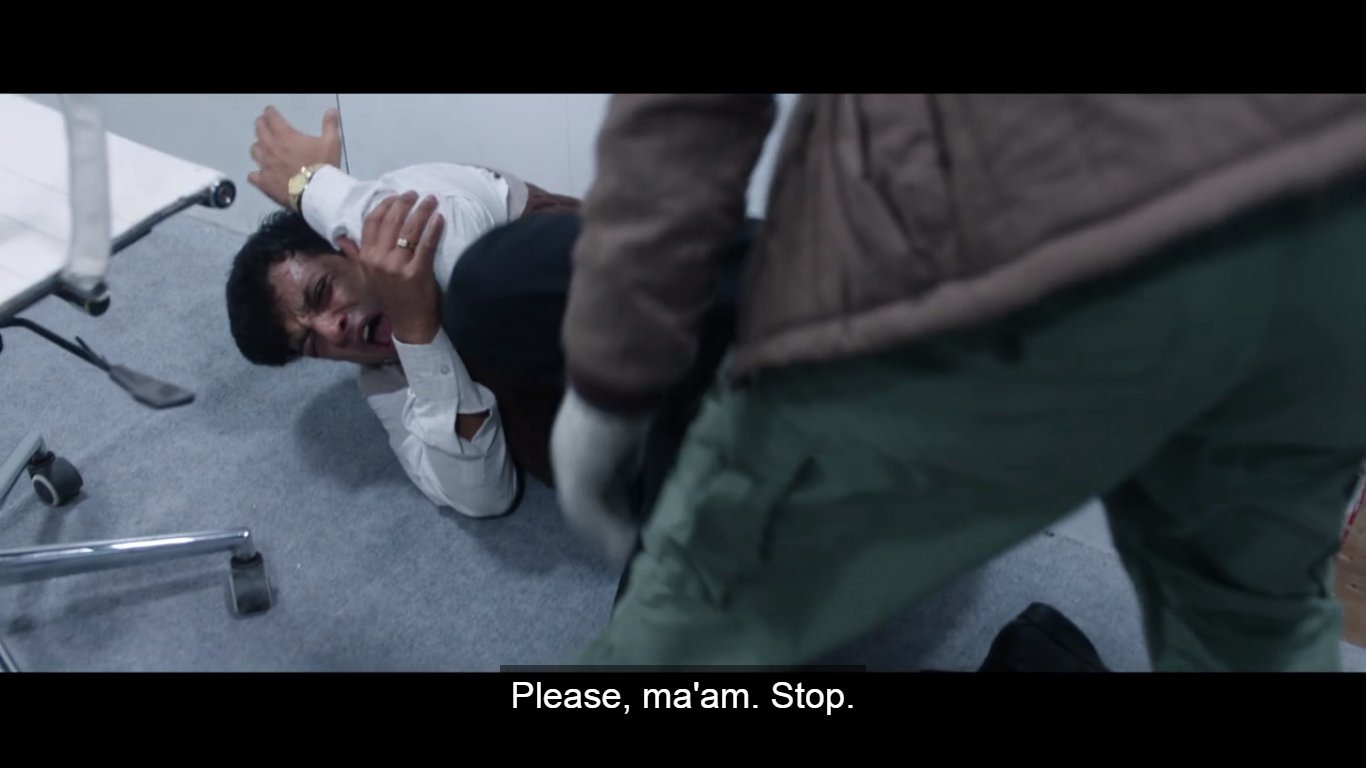
10. When Sandeep shatters the stereotypes that women can’t be both, emotional and cold. Or if a woman blackmails a man, it has to be about a romantic affair or an unwanted pregnancy.
Parineeti Chopra has shown glimmers of the potential she carries (which, sadly, has been largely squandered in recent times) when playing Sandeep aka Sandy Walia – a woman who breaks down at the thought of her unborn child’s safety with the same ease with which she carries out corporate espionage.
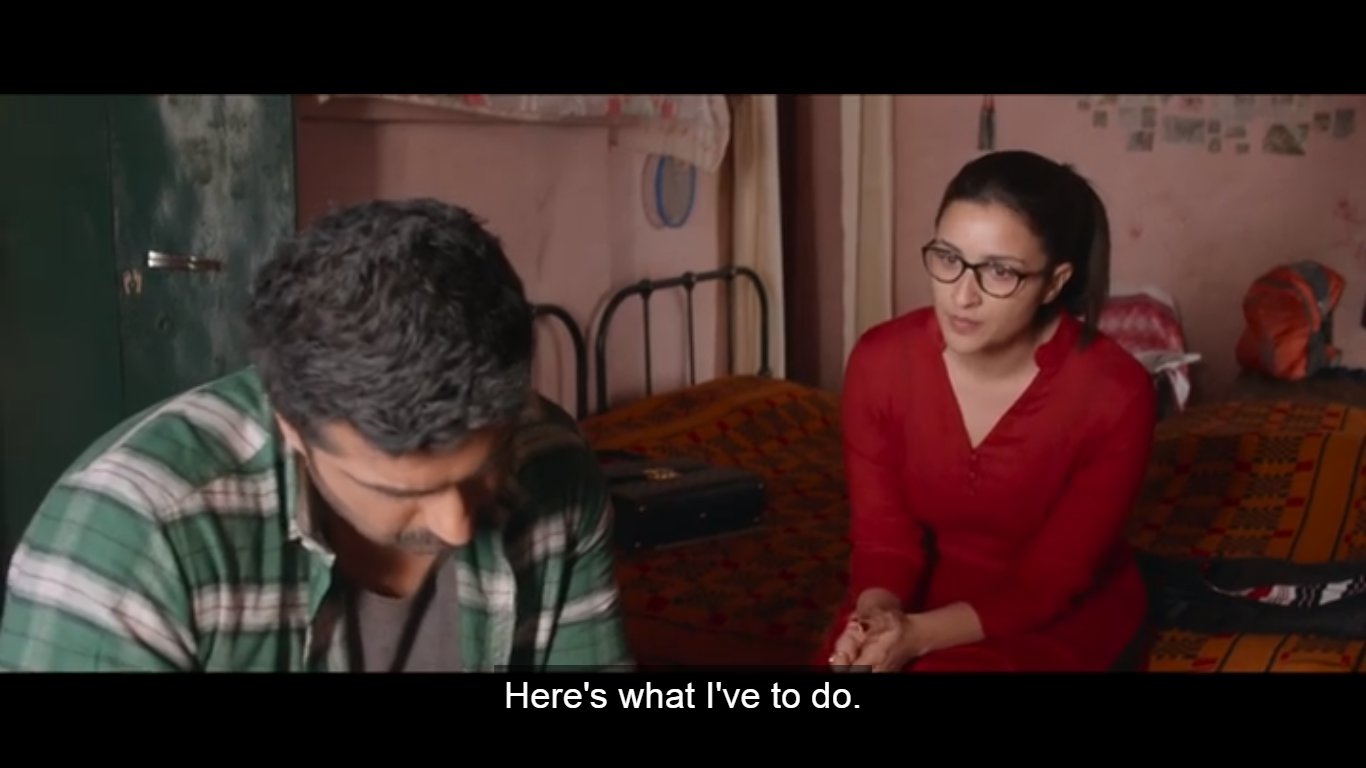
Sandeep aur Pinky Faraar is certainly not without flaws, and there’s no discounting the fact that Banerjee has delivered better, crisper stories in the past. But, right from its title to its climactic ending, the film challenges pre-conceived gender norms and cleverly exposes society’s flaws, without becoming preachy or moralistic. And that makes it well worth a watch indeed!
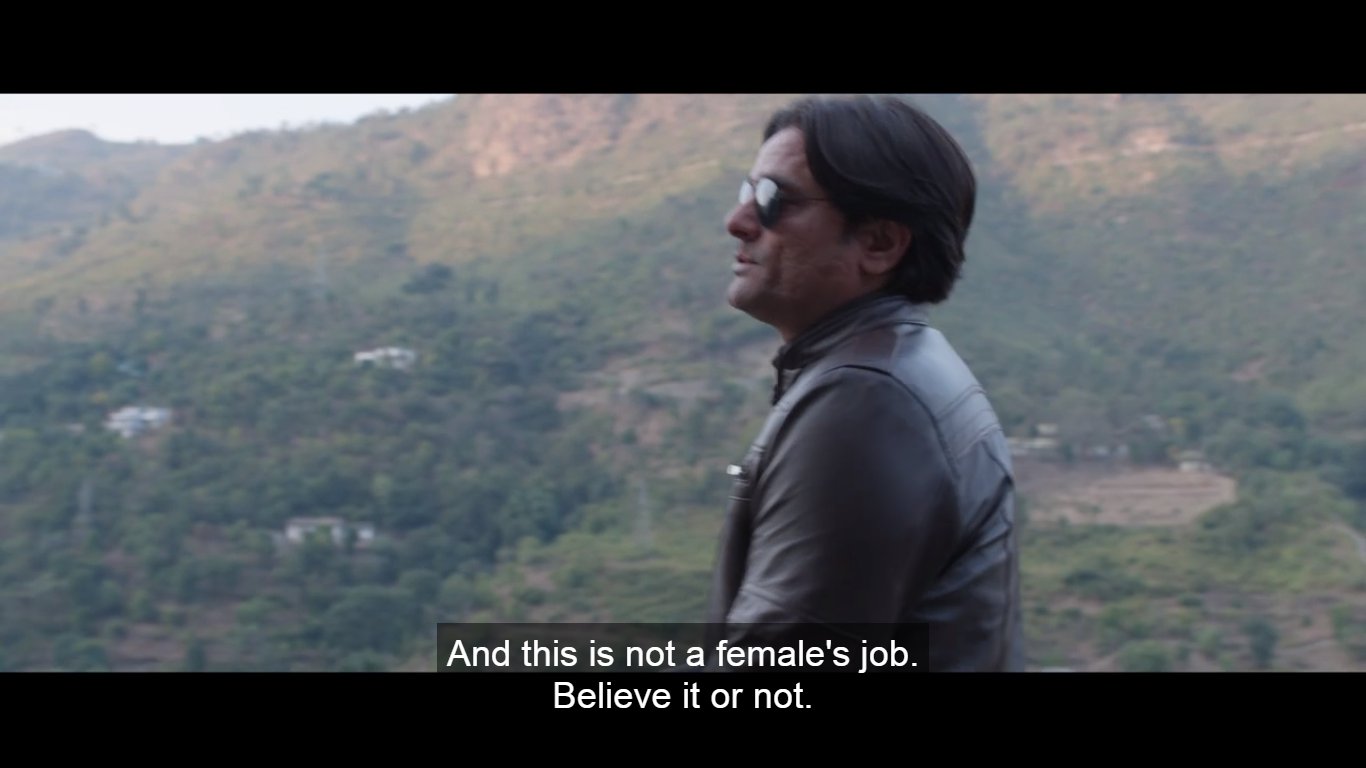
All images are screenshots from Amazon Prime Video, unless specified otherwise.
















